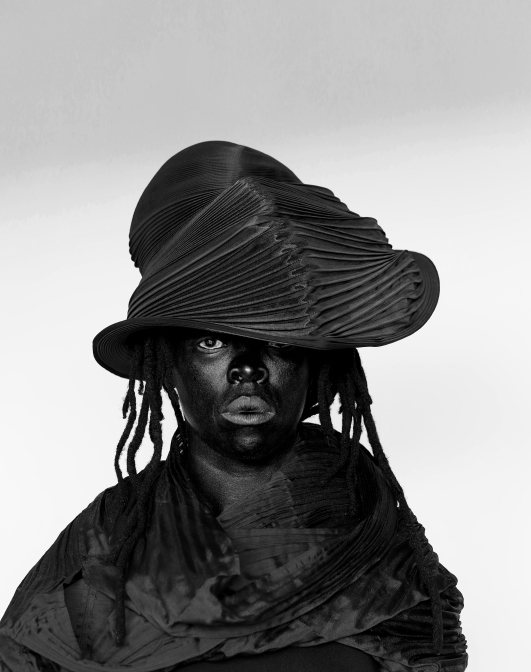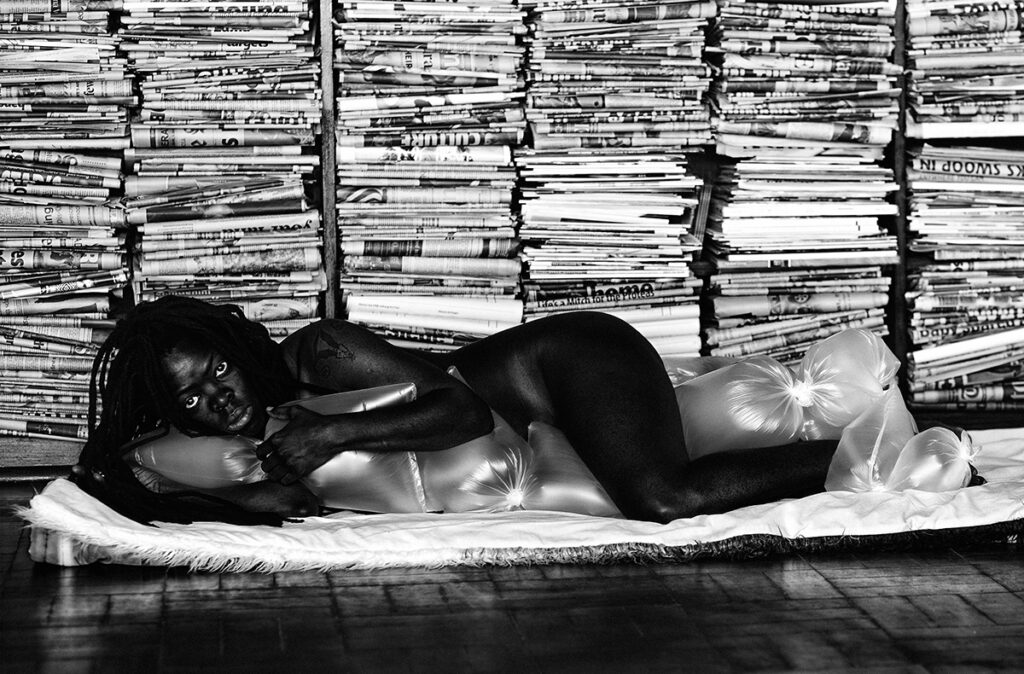By Elena Schaetz
In 2019 I traveled to South Africa to contribute to the work of the queer NGO Gay and Lesbian Network (GLN) in Pietermaritzburg, KwaZulu-Natal. GLN is focused on queer activism in the rural areas around Pietermaritzburg where they conduct workshops to educate and empower the community on topics such as sexuality and gender. As an organization from the community for the community, they built a place of support and connection for queer people. GLN aims to strengthen a network of LGBTI organizations, activists and allies in the province by bringing people together to share their knowledge.
Media plays a major role when it comes to their activism. GLN’s team gives queer South Africans the opportunity to learn skills like producing podcasts and creative writing to help them find their voice.
While I spent two months working at GLN’s social media team, they introduced me to Prof. Sir Zanele Muholi’s work and told me great stories about the impact Muholi has on the queer community as a visual artist and activist.
One of my colleagues took part in one of Muholi’s photography workshops and has been supported by them since then. He grew up as a trans boy in a township nearby and described to me how art has helped him figuring out his identity and how important it is to express that identity.
I have always valued art for the variety of emotions and stories it conveys and I deeply believe in the importance of representation. Muholi’s photographs show marginalized people in beautiful portraits, embracing their identities in a graceful and empowered way.
Like GLN, Muholi aims to connect and empower queer South Africans. They created the blog Inkanyiso (Zulu for „to light“) in 2006 as a platform for information and inspiration regarding queer rights, queer visual art and black queerness in South Africa.
Three years later Muholi registered Inkanyiso as a non profit organization, in response to the lack of visual histories and skills training produced by and for the LGBTI community. Since then, a collective of artists, writers and activists have been involved in Inkanyiso.
Their goal is to inform the reader on the struggles of marginalized groups by telling personal stories or showing different art pieces in forms of poetry, photography and videos. Inkanyiso also provides information on the political situation in South Africa and how current events affect the local LGBTI community.
South Africa has a very liberal and queer friendly constitution – same-sex marriage has been legalized in 2006, which makes it the fifth country worldwide giving queer people the right to legally get married. But the legal situation does not necessarily reflect the everyday life. Hate crimes like „corrective rapes“ – the rape of queer people with the intention to „turn“ them heterosexual, are still happening on a daily basis, forcing the LGBTI to take action like Muholi did with Inkanyiso.
Inkanyiso tackles issues regarding race, sexuality and gender, including black trans, lesbian and gay struggles in different parts of South Africa. The posts show the complexity and fluidity of gender and sexuality and give insight on personal problems as well as on structural, political issues. But Inkanyiso is not only a source for information, it’s also a place for empowerment. The writers show how art can shape the world, how they learned various skills and how they now use these skills to make a difference.
Muholi’s latest work – the workshops or speeches they give and their art works as well, is also partly presented on Inkanyiso.

„Somnyama Ngonyama, Hail the Dark Lioness” is a series of self portraits which Muholi started in 2012. The ongoing project now contains 365 pieces that show Muholi’s alter egos, mostly coming from a Zulu background, expressing Muholi’s identity as a black nonbinary queer South African.
Their project Faces and Phases, started in 2006, continues the theme of black queer identity but puts it in a wider perspective since it features a huge variety of black queer people instead of focusing on one individual. The 13th anniversary of this project lead to their latest solo photography exhibition Faces and Phases 13 which took place at STEVENSON in Johannesburg in 2019. With more than 500 black and white portraits of lesbians, gender-nonconforming individuals and transmen, the series Faces and Phases shows different aspects of gender and sexuality in black spaces. It focuses on black lesbian identities in townships and politics in post-apartheid South Africa. During Muholi’s travels they also documented black lesbian and trans people outside of their home country.

From the series Somnyama Ngonyama, Hail the Dark Lioness by Zanele Muholi
Copyright 2020 STEVENSON
About the artist: Zanele Muholi was born in 1972 in Durban, South Africa. After attending an Advanced Photography course at the Market Photo Workshop in Johannesburg in 2003, they held their first solo exhibition at the Johannesburg Art Gallery one year later. They finished university with a Master of Fine Arts degree in Documentary Media from Ryerson University in Toronto. In 2014 they taught visual activism at Hochschule für Künste in Bremen, Germany. Since then, they worked as a visual artist and queer activist, raising awareness on queer rights and focusing on increasing the visibility of black lesbian, gay, transgender, and intersex people.
Update 05 January 2022:
Since November 26, 2021, Muholi’s first comprehensive solo exhibition in Germany is being shown at Gropius Bau, Berlin. The exhibition which includes both lesser-known, early image series and recent works of the South African artist, can be visited until March 13, 2022.
Curated by Natasha Ginwala, Associate Curator, Gropius Bau; Yasufumi Nakamori, Senior Curator International Art (Photography), Tate Modern; and Sarah Allen, formerly Assistant Curator, Tate Modern.
Wed till Mon 10:00-19:00
Tue closed
More information about the exhibition can be found here: www.berlinerfestspiele.de.
About the author: Elena Schaetz is currently enrolled in the Master’s program Afrikawissenschaften at Humboldt-University, Berlin. Her work focuses on literature, culture, gender and queerness in South African regions.


